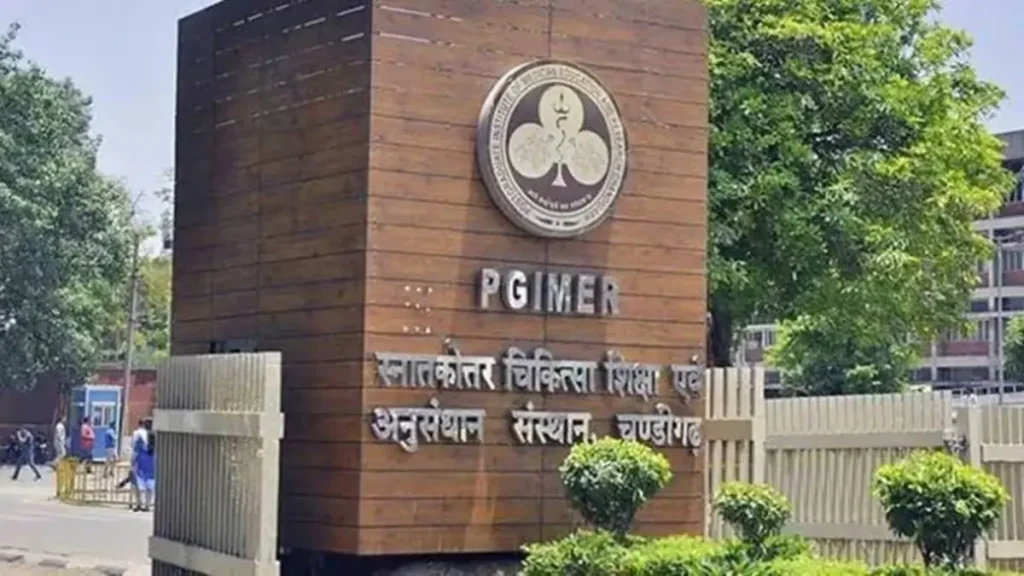Finance Minister Nirmala Sitharaman on February 1 presented the Union Budget 2026–27 in Parliament, laying out a roadmap to sustain India’s growth amid global uncertainties while advancing long-term structural reforms. The Budget spans key areas including taxation, infrastructure, healthcare, manufacturing and logistics, with capital expenditure raised by nearly 9% to a record ₹12.2 lakh crore, reinforcing the government’s infrastructure-led growth strategy. Major announcements include the rollout of the New Income Tax Act from April 1, 2026, seven high-speed rail corridors, rare earth corridors across four states, and a ₹10,000 crore Biopharma Shakti initiative. Education and skilling feature prominently, with a focus on design education and the creative economy through a new National Institute of Design for eastern India and Content Creator Labs in 15,000 schools and 500 colleges to boost the AVGC sector. Highlighting the Budget’s growth orientation, Prime Minister Narendra Modi said it would help MSMEs transition from local players to global champions. Against this backdrop, leaders and experts across sectors share their first reactions to the Budget’s implications for the economy, businesses and citizens. Key Budget 2026–27 Highlights at a Glance Fiscal consolidation maintained: Fiscal deficit for FY27 pegged at 4.3% of GDP, marginally lower than FY26, signalling continued commitment to macroeconomic stability. Debt reduction roadmap reaffirmed: India’s debt-to-GDP ratio projected to decline to 55.6% in FY27, with a medium-term target of approaching 50% by FY31. Record capital expenditure push: Capital outlay raised to an all-time high of ₹12.2 lakh crore to sustain infrastructure creation and crowd in private investment, supported by an Infrastructure Risk Guarantee Fund. AI, cloud and digital infrastructure boost: Tax holiday till 2047 for global cloud service providers operating data centres in India to position the country as a global AI and data hub. Major MSME and SME support: ₹10,000 crore SME Growth Fund, ₹2,000 crore top-up to the Self-Reliant India Fund, mandatory TReDS payments for CPSEs, and ‘Corporate Mitras’ to ease compliance and liquidity. Market discipline measures: Higher securities transaction tax on derivatives and taxation of share buybacks as capital gains to curb speculative activity. Strategic minerals focus: Dedicated rare earth corridors announced in Odisha, Kerala, Andhra Pradesh and Tamil Nadu to strengthen domestic supply chains. Transport and logistics expansion: Seven new high-speed rail corridors and a new Dankuni–Surat freight corridor to improve connectivity and green mobility. Relief on overseas education and healthcare costs: TCS under the Liberalised Remittance Scheme for education and medical remittances reduced from 5% to 2%, improving liquidity for families. Reactions from Leaders & Experts Kumar Chandan Anand, Founder, CEO & Group Editor, ArdorComm Media Group, says, “Today’s Union Budget is a reform-driven, youth-oriented agenda, reflecting a strong intent towards economic stability and future growth. The emphasis on infrastructure, manufacturing, sunrise industries, artificial intelligence (AI), job creation, biopharma, health tourism, ‘Heal-in-India’, digital expansion, and the Animation, Visual Effects, Gaming, and Comics (AVGC) sector is particularly encouraging. Initiatives like creator labs in schools and colleges will nurture talent and bridge the gap between education and industry needs. If timely and speedy execution matches the Budget’s intent, it could significantly strengthen industry confidence and grassroots development, benefiting the middle class and small businesses. This comprehensive effort will accelerate India’s growth trajectory and help achieve the goal of becoming the world’s third-largest economy.” Dr. S.S. Mantha, Founding Chancellor and President, RBU, Nagpur and Former Chairman, AICTE says “Budget 2026-27 is progressive and futuristic. It is quietly efficient. It gives a fillip to manufacturing. The idea of bridging education to employment is a great idea but will need a lot of ground work and mapping of skills to opportunities. The thrust on AI and Semiconductors design and production is especially interesting. Competing with the world leaders in those sectors can propel the nation into the big league. The education budget seems to have risen by 11% over last year. This could have been much higher accounting for inflation. I would have liked to see a bigger share for promoting research. Startup and Make in India initiatives should have had higher allocations. Thrust on MSME growth is much needed. That the budget addresses this is good. Higher investments in the health sector and defense sectors is noteworthy.” Dr. Manjula Pooja Shroff, Founder & CEO, Kalorex Group says, “The labour codes were suddenly made effective without necessary preparatory and implementation time. Employers are concerned about the risk of non-compliance, dispute, and litigation around various provisions where there is ambiguity. Generally, there is an expectation of more time for industry to comply and a supportive regulatory and enforcement mindset. Setting up Content Labs in High schools and Colleges is a welcome move guided by futuristic needs. The Union Budget demonstrates a clear focus on skilling and transition from education to employability. Setting up of NID, University Townships, extra support for women entrepreneurship show a future ready approach.” Dr. Vidya Yeravdekar, Principal Director, Symbiosis Society, and Pro Chancellor, Symbiosis International University, says, “The Union Budget 2026 reflects a clear intent to align education with India’s future workforce and innovation priorities. The introduction of Content Creator and AVGC labs in schools and colleges is a forward-looking step that integrates creative technologies, digital skills and early industry exposure into mainstream education. The proposal to build girls’ hostels in every district will significantly improve access, safety and retention of girls, particularly in higher education. Reducing TCS on overseas education expenses will ease financial pressure on families and support global academic mobility. The Budget’s strong focus on skilling, teacher upskilling, AI, emerging technologies and women’s participation in STEM, along with plans for university townships near industrial corridors, signals a shift towards outcome-driven, employment-linked education. Overall, the Budget positions education as a strategic enabler of inclusive growth, innovation and long-term national competitiveness.” Dr. Sujit Chatterjee, CEO, Sea View Healthcare Management Services Pvt. Ltd., CEO, Adi Arogyam Super Speciality Hospital, Mumbai says “The Union budget related to healthcare has been nebulous. There are positives such as decrease in some cancer drugs, Biopharma Shakti Mission has a budget of Rs 10,000 crore to










